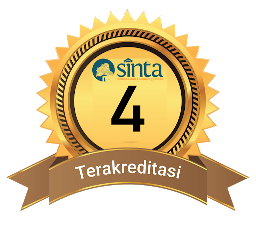The The Influence of The Islamic Boarding School Environment on Student Chemistry Learning Outcomes at MA NW Narmada
DOI:
10.29303/cep.v7i2.7284Published:
2024-11-30Issue:
Vol. 7 No. 2 (2024): Edisi NovemberKeywords:
Islamic boarding school, Learning Outcome, ChemistryArticles
Downloads
How to Cite
Abstract
This research investigates the influence of the Islamic boarding school environment on the chemistry learning outcomes of students at MA NW Narmada. Utilizing a quantitative approach, the study targeted a population of 105 class XII students, with a sample of 50 students selected through random sampling using the Slovin formula. Data collection instruments included questionnaires, observations, interviews, and documentation. The findings reveal that the Islamic boarding school environment significantly influences students' chemistry learning outcomes, as evidenced by an f-table value of 10.59 > 4.05 and a significance value of 0.002 (< 0.05). Additionally, the study highlights that environmental indicators at the boarding school are categorized as very good for the social environment, good for the non-social environment, and good for student activities. The boarding school environment contributes an 18% influence on chemistry learning outcomes, distributed across social environment indicators (6.74%), non-social environment (5.52%), and student activities (5.74%).
References
Arifin, M. (1991). Kapita Selekta Pendidikan Islam Dan Umum. Jakarta: Bumi Aksara.
Aulia, Q. S., Darusman, Y., & Laksono, B. A. . (2023). Hubungan antara Kemandirian Belajar dengan Hasil Belajar Bahasa Arab: Studi terhadap Santri di Pondok Pesantren Nashrul Haq Al-Islamy Sukarindik, Kota Tasikmalaya. Ta’limi | Journal of Arabic Education and Arabic Studies, 2(2), 87–100.
Dimyati & Mudjiono. (2013.) Belajar Dan Pembelajaran. Jakarta: Rineka Cipta
Djamarah, S. (2012). Psikologi Belajar. Jakarta: Rineka Cipta.
Gracia, AP., & Anugraheni, I. (2021). Meta Analisis Model Pembelajaran Kooperatif Tipe Numbered Head Together Terhadap Hasil Belajar Siswa di Sekolah Dasar. Edukatif: Jurnal Ilmu Pendidikan. 3(2). 436–446.
Hanifah, R. (2021). Pengaruh Lingkungan Sekolah dan Lingkungan Pondok Pesantren An-Najiyyah Terhadap Minat Belajar Siswa pada Mata Pelajaran Fiqih Kelas VII dan VIII MTs An-Najiyyah Lengkong Tahun Pelajaran 2020/2021. (Skripsi, Institut Agama Islam Negeri Ponorogo).
Kartika, D. T. (2013). Pengaruh Kebiasaan Belajar dan Lingkungan Belajar terhadap Hasil Belajar Siswa Pada Mata Pelajaran Ekonom Kelas X di SMA Negeri 1 Jombang. Jurnal Pendidikan Ekonomi, 1(3), 1–15
Latief, A. (2014). Pengaruh Lingkungan Sekolah terhadap Hasil Belajar Pendidikan Kewarganegaraan pada Peserta Didik di SMK Negeri Paku Kecamatan Bunuang Kabupaten Polewali Mandar. Pepatuzdu. 7(1). 13-26.
Loka, I. N., Haris, M., & Hakim, A. (2022). Pendampingan Implementasi Lesson Study For Learning Community (LSLC) Untuk Peningkatan Kemampuan Berpikir Kritis dan Hasil Belajar Kimia Siswa SMA/MA/SMK Yayasan Pondok Pesantren Darussholihin NW Kalijaga, Kecamatan Aikmel, Kabupaten Lombok Timur. Jurnal Pengabdian Magister Pendidikan IPA, 5(1), 323-328.
Narwoko, J. Dwi & Suyanto. (2010). Sosiologi Teks Pengantar dan Terapan edisi ketiga. Jakarta: Prenada Media Group.
Nokwanti. (2013). Pengaruh Tingkat Disiplin dan Lingkungan Belajar di Sekolah Terhadap Prestasi Belajar Siswa. Pendidikan. 1(1). 80-89.
Noor, IM. (2013). Pemanfaatan Waktu Luang Peserta Didik Sekolah Menengah Atas. Perspektif Ilmu Pendidikan. 27(2).118-126.
Nurhayati, E., & Yasin, B., (2009). Pengaruh Lingkungan Sosial Dan Non Sosial Pondok Pesantren Terhadap Prestasi Belajar Matematika Siswa Kelas VIII Mts Husnul Khotimah Pondok Pesantren Husnul Khotimah Manis Kidul – Jalaksana – Kuningan. EduMa. 1(1). 65-74.
Pribadi, B.A., (2009) Model - model Desain Sistem Pembelajaran. Jakarta: PT Dian Rakyat.
Setianingrum, I. (2012). Hubungan Disiplin Belajar dan Motivasi Belajar dengan Hasil Belajar pada Siswa Kelas V SD Negeri Gugus Lokantra Kecamatan Temanggung Kabupaten Temanggung Semester 1 Tahun Pelajaran 2011/2012. (Skripsi, Universitas Kristen Satya Wacana Salatiga).
Slameto. (2012). Belajar Dan Faktor-faktor Yang Mempengaruhi. Jakarta: PT Rineka Cipta
Supardi, dan Anwar. (2004). Dasar-Dasar Perilaku Organisasi. Yogyakarta: UII Press.
Surachman. (2008). Dasar-dasar Pengelolaan Laboratorium Biologi. Yogyakarta: FPMMIPA IKIP.
Surya, M. (2014). Psikologi Guru: Konsep Dan Aplikasinya. Bandung: Alfabeta
Syah, M. (2011). Psikologi Pendidikan dengan Pendekatan Baru. Bandung: Remaja Rosdakarya.
Author Biographies
Ziadati Unsalhusna, Universitas Mataram
Lalu Rudyat Telly Savalas, University of Mataram
Muti’ah, University of Mataram
License
Copyright (c) 2024 Ziadati Unsalhusna

This work is licensed under a Creative Commons Attribution-ShareAlike 4.0 International License.
Authors who publish with Chemistry Education Practice agree to the following terms:
- Authors retain copyright and grant the journal right of first publication with the work simultaneously licensed under a Creative Commons Attribution License 4.0 International License (CC-BY-SA License). This license allows authors to use all articles, data sets, graphics, and appendices in data mining applications, search engines, web sites, blogs, and other platforms by providing an appropriate reference. The journal allows the author(s) to hold the copyright without restrictions and will retain publishing rights without restrictions.
- Authors are able to enter into separate, additional contractual arrangements for the non-exclusive distribution of the journal's published version of the work (e.g., post it to an institutional repository or publish it in a book), with an acknowledgement of its initial publication in Chemistry Education Practice.
- Authors are permitted and encouraged to post their work online (e.g., in institutional repositories or on their website) prior to and during the submission process, as it can lead to productive exchanges, as well as earlier and greater citation of published work (See The Effect of Open Access).






